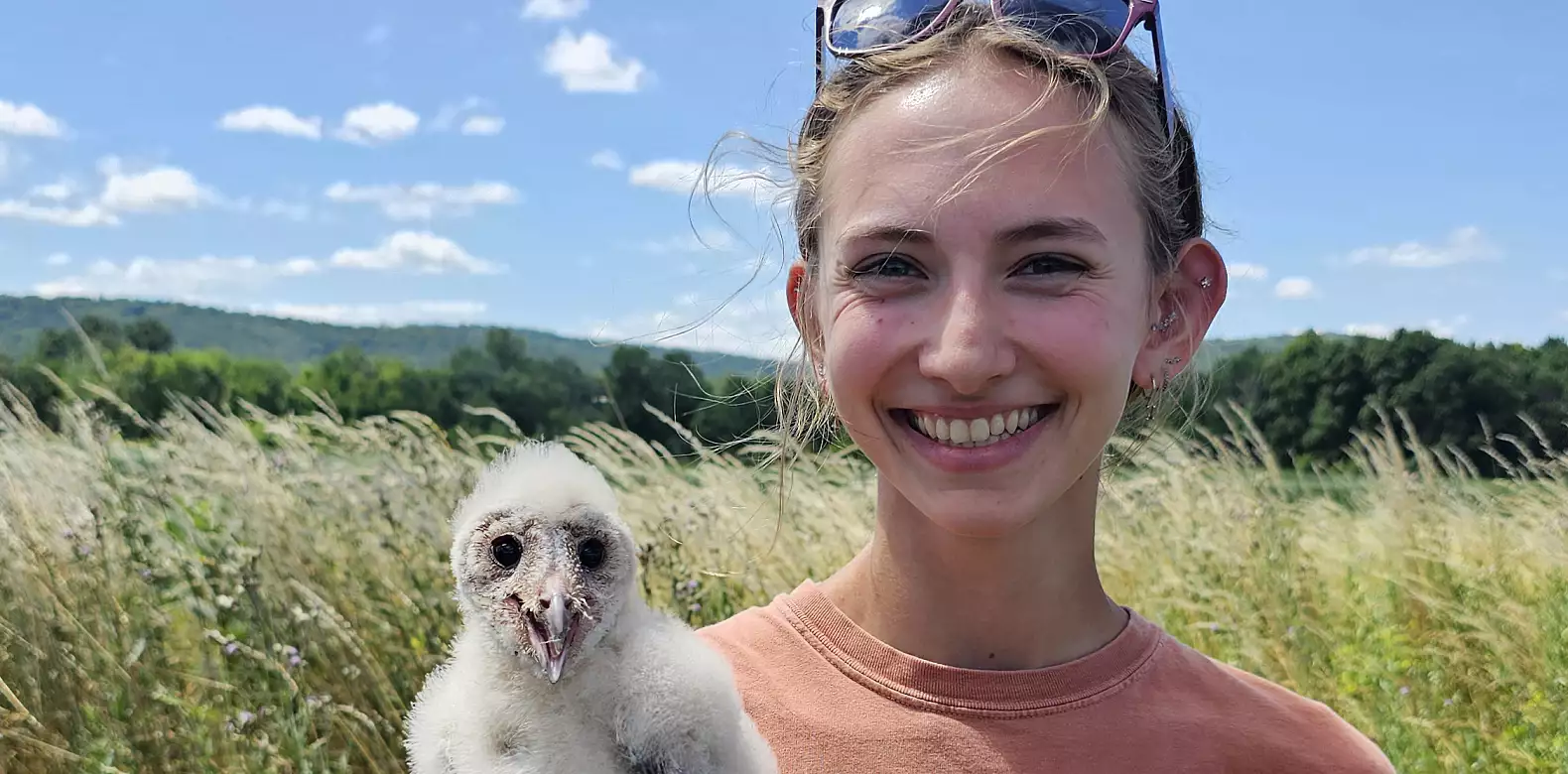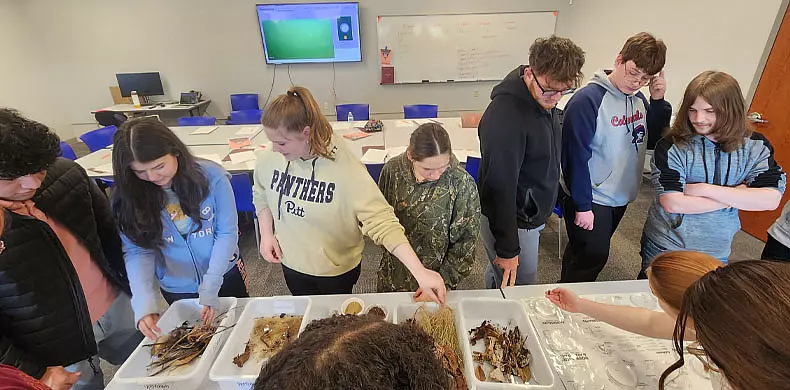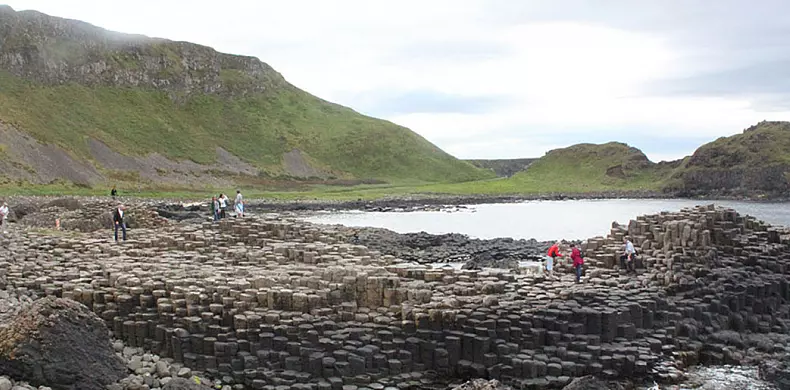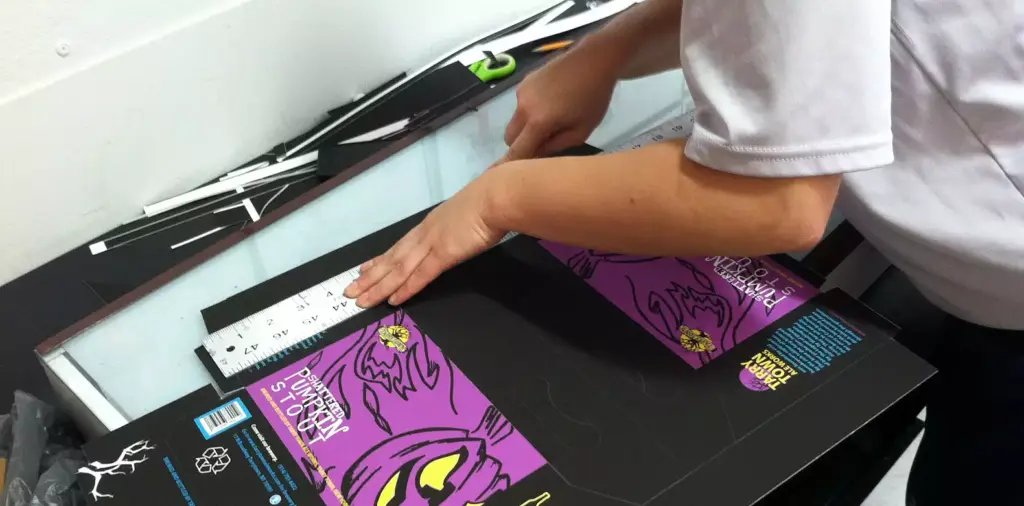Sara Motz ’25 carefully tried to free the tiny common yellowthroat from the fine mesh net she and her fellow interns with the Pennsylvania Game Commission had been using to catch songbirds, but as the bird squirmed and Motz’s supervisor watched, she got nervous.
Motz, an ecology major in Susquehanna’s School of Natural and Social Sciences, said she has dealt with anxiety throughout her life, and learning to band small songbirds was stressful. She is participating in the Monitoring Avian Productivity and Survivorship station at the Middle Creek Wildlife Management Area. MAPS is a continent-wide collaboration to assist bird conservation through demographic monitoring.
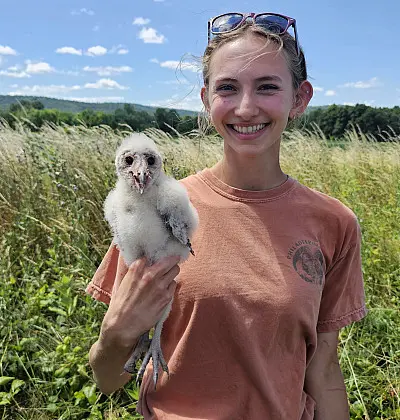
“When first learning to band birds, my anxiety often presented itself through shaky and sweaty hands,” Motz, of Reading, Pennsylvania, said. “I struggled to put the band on, especially with tiny birds, with my hands shaking both the bird and the pliers. This took a while to overcome, but I just needed more experience and exposure to the specific task, through which I gained patience with myself and the birds as they require a calm, deliberate approach to extraction.”
Her confidence continues to grow as she also bands Canada geese, mourning doves and barn owls, in addition to songbirds and kestrels. Her other work includes traveling throughout the southeast region of Pennsylvania targeting habitat concerns within different game lands that are influential to game and nongame species. She also applies herbicides to invasive plants, removes disruptive beaver dams, observes prescribed fires, installs informative signs, and is being trained to use chainsaws and other power tools for land management.
Motz credits her Winter Ecology of Vertebrates class at Susquehanna, taught by Associate Professor of Biology Carlos Iudica, with teaching her vital information about birds and mammals that she utilizes in her internship.
“My most valuable takeaway from this course was to think like the animal you are trying to capture. What do they desire and what are they trying to avoid?” Motz said. “By understanding animal behavior, you can more effectively place and bait your traps to ensure higher capture rates, increasing data collection with decreased effort.”
Although Motz isn’t certain what her path will be after graduation, she is confident that ecology is the right field for her.
“I’d love to continue to diversify my résumé, learn about other wildlife and try new experiences before settling upon one career path,” she said. “I’m pursuing careers in a field dedicated to environmental education, conservation and preservation, but beyond that I’m not totally sure, and that’s okay for now.”
